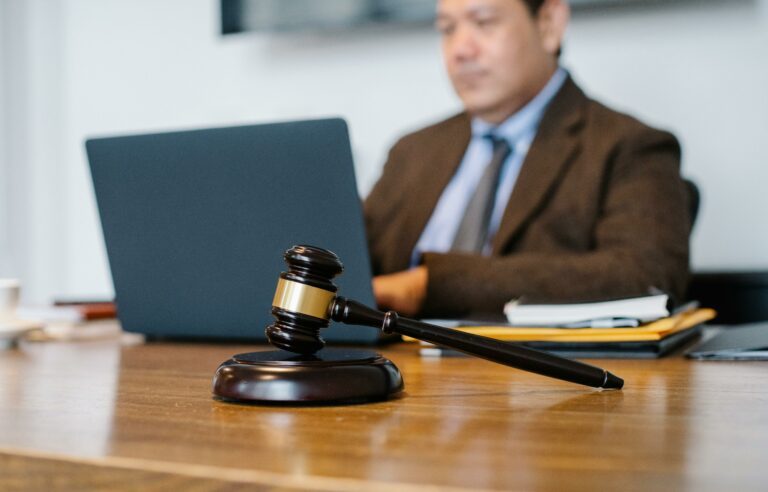
What are Punitive Damages? Understanding the Legal Concept
Most often when pursuing a personal injury claim in the wake of an accident, you’ll seek compensation damages that cover costs like vehicle repairs and medical expenses. In some cases, especially those where injury has resulted from an intentional act (tort cases), you may also seek what’s known as punitive damages.
Table of Contents
Intended to punish the defendant’s actions rather than simply compensate for your losses, punitive damages are awarded in 30% of cases when they’re sought, with 13% of those cases awarded with $1 million in damages or more. However, Florida courts do have strict standards about when punitive damages can be awarded.
Here, we’ll consider what is punitive damages, and when exactly this legal concept applies.
Understanding Punitive Damages
Punitive damages may also be referred to as exemplary damages, and they are intended to punish and deter a defendant. These are awarded in addition to compensation but, unlike compensation, not all personal accident claims are eligible.
According to Florida’s punitive damages statute, punitive damages can only be claimed when ‘there is a reasonable showing by evidence’ of their applicability. Even then, punitive damages may only be awarded by a jury under exceptional circumstances.
Most commonly, cases where punitive damages may be awarded fall into two categories, which are –
- Gross negligence: Punitive damages may be considered when conduct or care from, say, a business owner or boss, is reckless enough to constitute a conscious disregard for an individual’s life, safety, and rights. For example, if the ongoing use of known faulty equipment results in the death of an employee.
- Intentional misconduct: Punitive damages can also be awarded in cases of intentional misconduct when a defendant has prior knowledge of their misconduct and its high probability to cause injury but pursues their course of action anyway. For instance, drunk driving that results in death or serious injury.
When pursuing punitive damages in Florida, a personal injury lawyer must conduct a hearing before a judge, during which they have to prove that their case for punitive damages is worth presenting to a jury. This process cannot be completed after a case is settled, nor can punitive damages be requested during an initial hearing. Instead, a leave of court must be obtained.
Seeking a personal injury lawyer with experience of successful punitive damages claims is crucial for ensuring proper procedure and increasing the chances of success in cases like these.
Calculating Punitive Damages
Only a jury can award punitive damages in Florida, but they’re not responsible for calculating those punitive damages. Rather, punitive damages are typically calculated based on the case, and any surrounding statute
For instance, punitive damages in gross negligence cases are capped at either $500,000 or three times the total amount of compensation awarded, whichever is greater. By comparison, there’s often no cap on punitive damages in an intentional misconduct case, particularly in tort cases. Instead, the court may order whichever amount it feels is fitting to the crime, typically based on the severity of the wrongdoing and the suffering of the victim.
There is a different calculation process, again, when a defendant commits intentional misconduct for financial gain, such as a company intentionally selling a product that they know is faulty, and causing injury or death as a result. In these cases, the court can award punitive damages of up to four times the amount of compensation, or $2 million, whichever is greater.
An experienced personal injury lawyer will be well versed in these different amounts, and can help to ensure that you receive the punitive damages that you deserve.
Who Receives Punitive Damages?
Punitive damages are awarded to a plaintiff and must be paid by a defendant on top of any compensation in a personal injury lawsuit. For their client to be awarded punitive damages, however, a lawyer must present damning, clear, and undeniable evidence that the defendant acted knowingly, and that ‘exemplary’ damages are therefore called for. When deciding whether a plaintiff will be awarded the punitive damages requested, a judge will consider factors including –
- The degree of culpability
- The harm caused
- The defendant’s wealth
- Prior conduct of the defendant
- And more
If a judge determines that suggested punitive damages will act as an effective deterrent, the plaintiff will be awarded this and any compensation.
Exploring Punitive Charges in Lawsuits
Any type of personal injury claim could result in punitive charges, but not all personal injury lawsuits will do so. That’s because of the need to prove wrongdoing and intention via collected evidence. Most commonly, lawsuits that result in the award of punitive charges include –
- Car accidents: Accidents caused by an intoxicated or reckless driver can result in punitive damages if bad injuries are sustained. Driving under the influence even classifies as intentional misconduct because the individual is aware of the damage that their actions might cause, but proceeds anyway.
- Product liability: Product liability cases, especially those where a business owner is aware of faulty products but sells them anyway, can result in uncapped punitive charges. This is true of any industry but is especially likely in medical or pharmaceutical fields where serious injury can occur.
- Employer misconduct: Employers who cause injury or death by violating employee safety standards can be brought on punitive charges, even when protected by the worker’s compensation system.
- Medical malpractice: It’s difficult to file punitive damages against individual doctors due to their status as expert witnesses, but it is possible to seek punitive damages from medical facilities if a lawyer can prove that poor processes, crossed communications, or other inefficiencies resulted in injury or death.
Other lawsuits that may involve successful calls for punitive damages include truck accidents, premises liability, and more. In each instance, building the most effective, informed case possible makes punitive damages far more likely. A personal injury lawyer with experience in cases like these is, therefore, crucial for ensuring the compensation you deserve. Start on your path to punitive damages after an accident today when you contact the Law Office of Cary Woods II at (786)750-7872 or online today.





